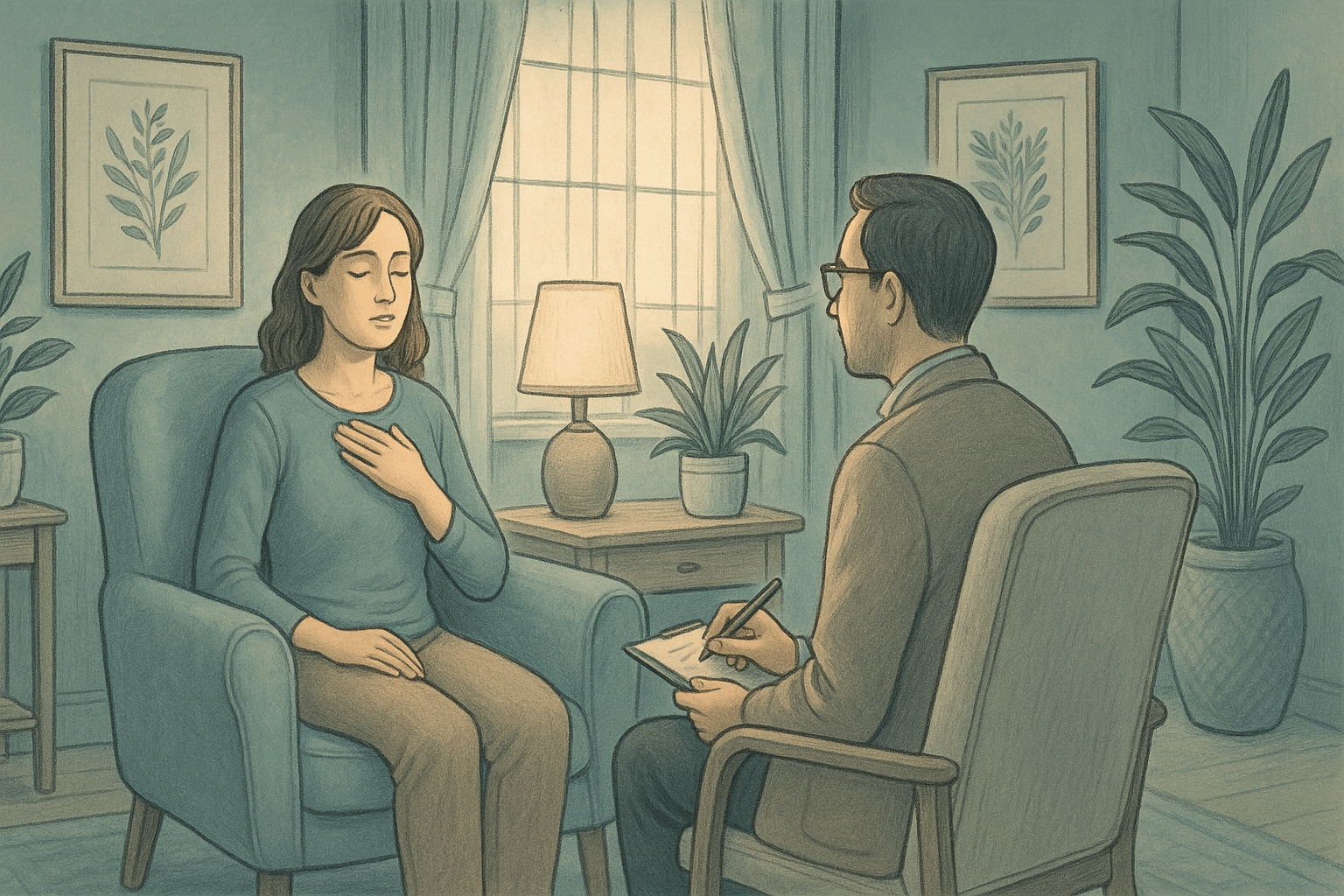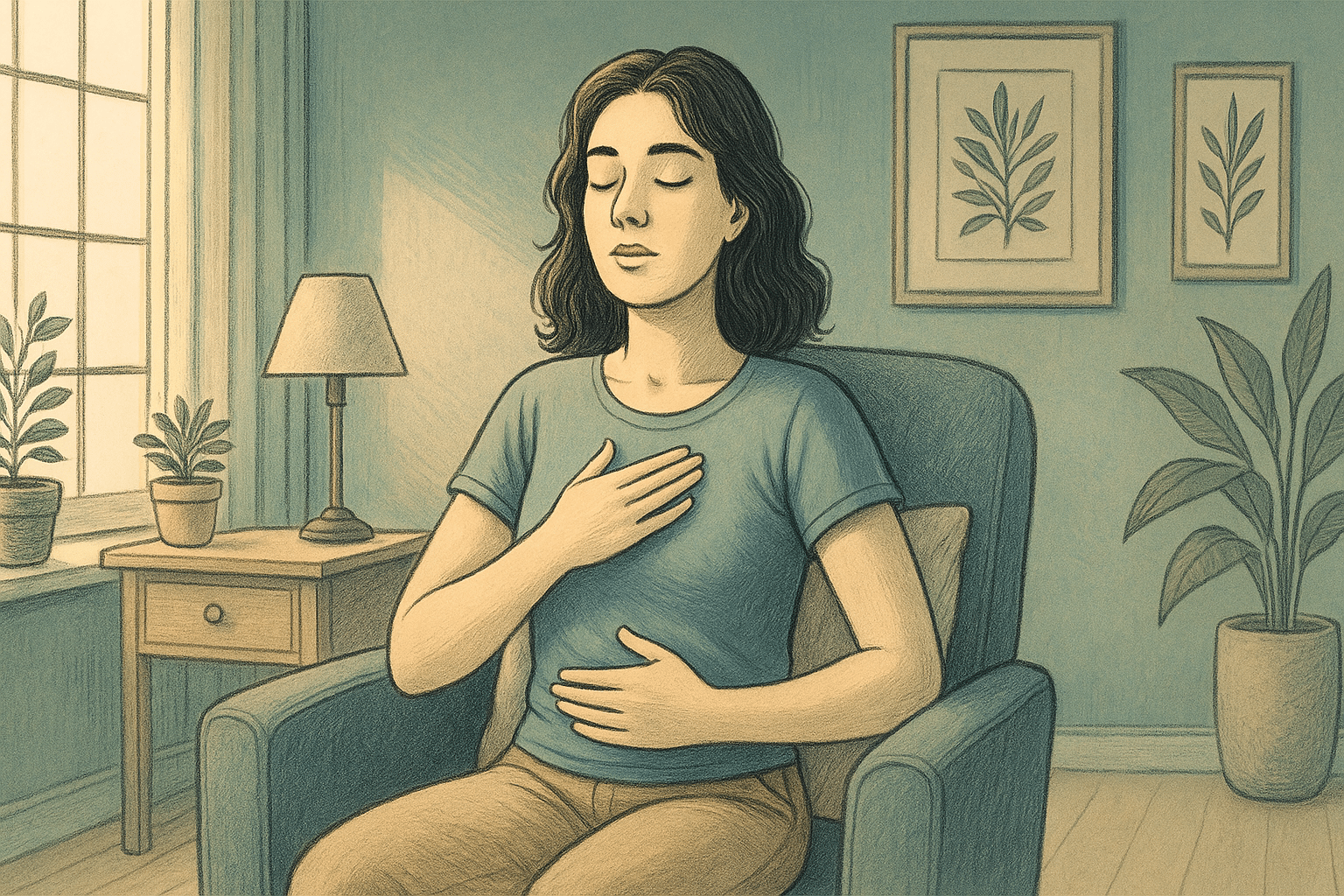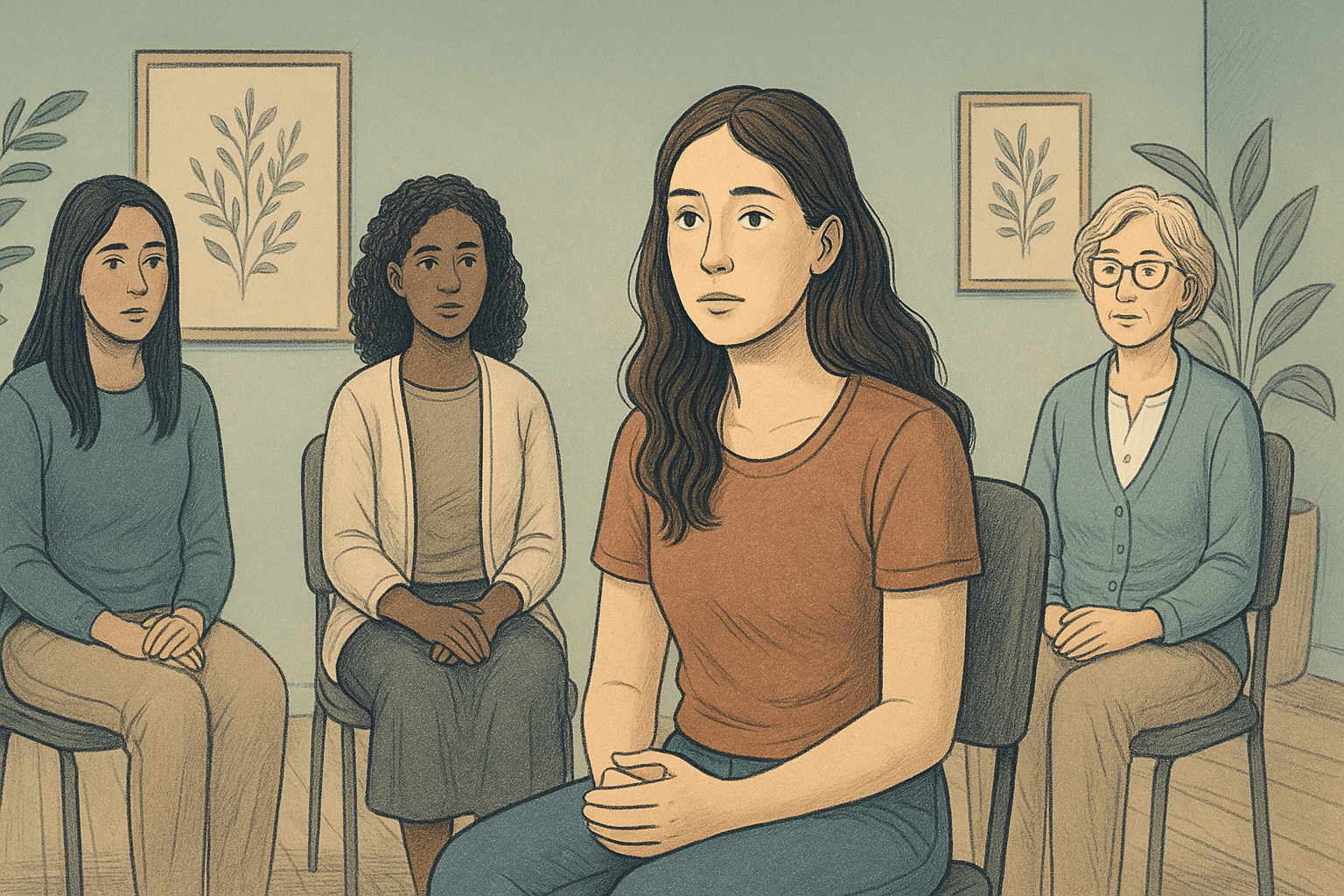
Key Takeaways
- Trauma-focused therapy offers specialized techniques like CBT, EMDR, and NET specifically designed to help domestic violence survivors process traumatic experiences.
- These therapies address immediate symptoms and promote long-term emotional healing and resilience.
- While these therapies offer numerous benefits, potential challenges include initial discomfort and accessibility issues.
- Mission Connection Healthcare offers trauma-focused therapy for domestic violence survivors with personalized care from experienced specialists, available in a safe setting both in-person and via telehealth.
Why Trauma-Focused Therapy Matters for Domestic Violence Survivors
Domestic violence leaves invisible scars that often linger long after physical wounds have healed. Trauma-focused therapy is designed to help individuals process traumatic events, address deep-seated psychological injuries, and alleviate the symptoms of PTSD, anxiety, and depression that often accompany such experiences.
Understanding Trauma on Mental Health
Trauma can profoundly affect mental health, disrupting how individuals perceive themselves and the world around them. It often leads to feelings of helplessness, fear, and isolation. Survivors of domestic violence may struggle with trust issues, low self-esteem, and difficulty forming healthy relationships.
Recognizing the Need for Specialized Therapy
Generic therapeutic approaches might not address the specific needs of trauma survivors.
Trauma-focused therapy recognizes the unique challenges faced by these individuals and tailors interventions accordingly. It is a safe space for survivors to process their experiences and develop coping mechanisms that are effective and empowering.
Mission Connection offers flexible outpatient care for adults needing more than weekly therapy. Our in-person and telehealth programs include individual, group, and experiential therapy, along with psychiatric care and medication management.
We treat anxiety, depression, trauma, and bipolar disorder using evidence-based approaches like CBT, DBT, mindfulness, and trauma-focused therapies. Designed to fit into daily life, our services provide consistent support without requiring residential care.
Core Techniques in Trauma-Focused Therapy
Cognitive Behavioral Therapy (CBT)

Cognitive Behavioral Therapy (CBT) focuses on identifying and changing negative thought patterns that contribute to emotional distress. By restructuring these thoughts, survivors can alter their emotional responses and behaviors, leading to improved mental health.
Eye Movement Desensitization and Reprocessing (EMDR)
Eye Movement Desensitization and Reprocessing (EMDR) is a unique therapy that uses guided eye movements to help individuals process and integrate traumatic memories. This technique has been shown to rapidly reduce the intensity of trauma-related symptoms as it helps the brain reprocess memories in a way that is less emotionally charged.
Narrative Exposure Therapy (NET)
Narrative Exposure Therapy (NET) allows survivors to construct a coherent narrative of their traumatic experiences. By organizing memories into a structured story, individuals can gain perspective and emotional distance from the trauma. This process often leads to a reduction in PTSD symptoms and an improved sense of control over one’s life.
Advantages of Trauma-Focused Therapy
Psychological and Emotional Recovery
One of the primary goals of trauma-focused therapy is to promote psychological and emotional recovery. By processing traumatic memories, you can reduce the emotional charge associated with these experiences, leading to decreased symptoms of PTSD and anxiety.
Building Resilience and Coping Skills

Coping skills are vital for managing stress and preventing future psychological distress. By learning how to effectively cope with challenges, you can go through life with greater confidence and stability.
For example, you might learn mindfulness techniques to manage anxiety or cognitive restructuring to challenge negative thought patterns. These tools can be invaluable in helping you maintain your mental health and well-being.
Enhancing Self-Esteem and Empowerment
Another significant advantage of trauma-focused therapy is its impact on self-esteem and empowerment. By addressing the underlying causes of low self-worth, therapy helps you build a more positive self-image and develop a stronger sense of personal agency.
Potential Challenges of Trauma-Focused Therapy
Overcoming Initial Discomfort and Resistance
Starting therapy can be daunting for many survivors, especially when it involves revisiting traumatic memories. Initial discomfort and resistance are common, but they can be addressed through a supportive therapeutic relationship and gradual exposure to difficult topics.
For example, a therapist might begin with less distressing memories and slowly work towards more challenging ones, allowing you to build confidence and trust in the process.
Accessibility and Availability of Therapists
Accessibility and availability of qualified therapists can be a significant barrier to receiving trauma-focused therapy. Limited resources, especially in rural or underserved areas, can make it challenging for you to find the help you need.
To address this issue, you can check out alternative treatment options such as teletherapy or online support groups just to get you started in the healing process.
The Future of Trauma-Focused Therapy in Healing

Innovative Approaches and Techniques
Innovative approaches are continually being developed to enhance the healing process for survivors of domestic violence. These new methods often incorporate elements from various therapeutic disciplines, creating a more holistic approach to treatment.
One such innovation is trauma-informed yoga, which combines physical movement with mindfulness practices to help individuals reconnect with their bodies and emotions. This approach can be particularly beneficial for survivors who have experienced physical abuse, as it fosters a sense of safety and empowerment.
Integrating Technology and Therapy
Technology is playing an increasingly important role in making trauma-focused therapy more accessible and effective. Virtual reality (VR) therapy, for example, allows survivors to safely explore and process traumatic memories in a controlled, immersive environment. This technology can help reduce anxiety and promote emotional healing by providing a realistic yet safe space for exposure therapy.
Besides that, teletherapy platforms are expanding access to trauma-focused therapy, especially for individuals in remote or underserved areas. These platforms enable you to connect with qualified therapists from the comfort of your own homes.
Community Support and Continued Research

Support groups, both in-person and online, offer a safe space for individuals to share their experiences and learn from others who have faced similar challenges. This sense of connection can be incredibly healing and empowering.
By exploring new therapeutic techniques in the field of trauma-focused therapy and evaluating their effectiveness, we can ensure that survivors receive the most effective and compassionate care possible.
Mission Connection’s Commitment to Healing Domestic Violence Trauma
Trauma-focused therapy offers domestic violence survivors a pathway to reclaiming their lives through specialized techniques that address the unique psychological impacts of abuse.

Our experienced trauma specialists create personalized treatment plans that respect your unique experience and recovery timeline. We recognize that taking the first step is often the hardest part, which is why our supportive team guides you compassionately through each stage of the therapeutic process.
If you choose our in-person services or prefer the privacy of telehealth options, we ensure accessibility to quality trauma therapy. Our approach not only addresses immediate symptoms but focuses on building lasting resilience and empowerment.
If you’re ready to transform trauma into strength, contact Mission Connection Healthcare and begin your journey toward a life defined by your courage, not your past.
Call Today 866-833-1822.
Frequently Asked Questions (FAQ)
What is trauma-focused therapy?
Trauma-focused therapy is a specialized form of psychotherapy designed to help individuals process and recover from traumatic experiences. It encompasses a range of techniques, such as CBT, EMDR, and NET, each customized to address the unique needs of trauma survivors.
How does trauma-focused therapy help domestic violence survivors?
Trauma-focused therapy helps domestic violence survivors by providing them with the tools and support needed to process traumatic experiences and heal emotionally. It addresses the immediate symptoms of trauma, such as anxiety, depression, and PTSD, while also promoting long-term resilience and coping skills.
How can someone access trauma-focused therapy?
To access trauma-focused therapy, individuals can contact local mental health clinics or organizations that specialize in trauma and domestic violence. Many therapists offer sliding scale fees or accept insurance to make therapy more affordable.
What are alternative therapies for domestic violence survivors?
While trauma-focused therapy is highly effective, some individuals may benefit from alternative therapies that complement traditional approaches. These can include art therapy, music therapy, and mindfulness-based practices, all of which offer unique ways to process emotions and promote healing.
What can I expect during a trauma therapy session at Mission Connection?
During a trauma therapy session at Mission Connection Healthcare, you can expect to discuss your experiences, emotions, and any trauma-related symptoms in a safe and supportive environment.
Your therapist will guide you through various techniques to process trauma, manage distress, and develop healthy coping mechanisms. Our approach is collaborative, with therapists working alongside you to address trauma-related symptoms, develop personalized coping strategies, and promote healing.








